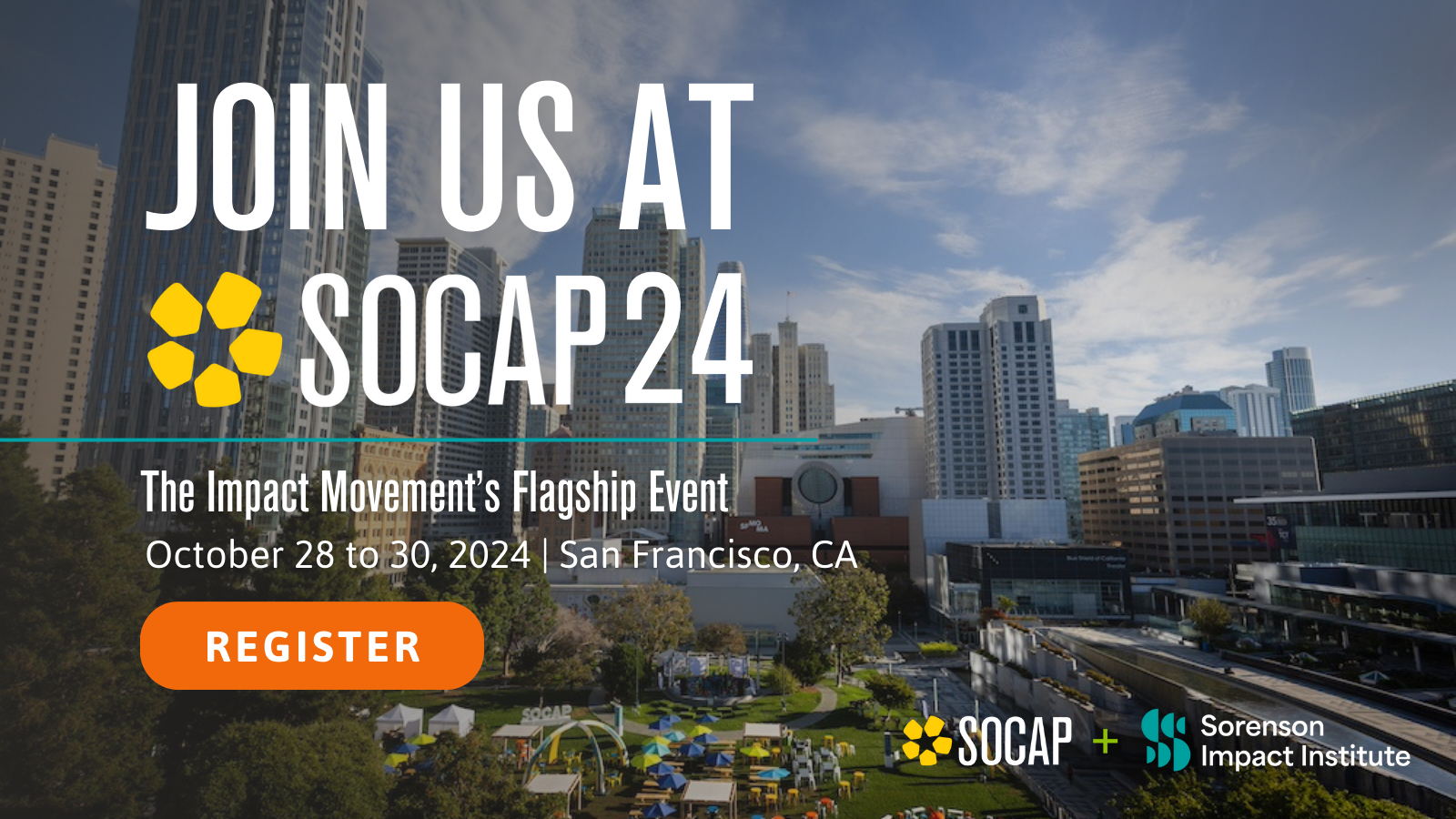“It is more rewarding to watch money change the world than to watch it accumulate.”
Gloria Steinem
Shifting culture and creating a new economy and a new world is about more than increasing the number of businesses that are doing business in a better way. It is truly about creating a movement of people who are using their business to create a new culture that values empathy, equality, and equity for everyone and the earth. It is about teaching brands and businesses that they are accountable to people, planet, and profits. And, that they are now required to be intentional, inclusive, and intersectional – in the solutions they solve and the people they support.
In order to do this, we have to look beyond arguments that present only two sides: a solution to a problem and the reason that solution won’t work and then the reasons it will. These back-and-forth discussions are mostly missing the point and keeping us from seeing real progress. We have to ask, “How can changing the entire conversation remove the debate about whether something is a solution or not?”
For example, my (non)extensive research tells me that, “Can I actually make as much money if I invest in social impact funds?” is the number one question asked by people curious about investing in social impact funds.
The problem is that this is a question that has no true meaning for us. Attempting to answer it will only send us on a quest for truth that rivals Alice’s journey through Wonderland.
The White Rabbit. Our first few Google results will be the traditional nerdy investment sites that ramble things we may or may not be able to follow while also being very busy and very important.
The Caterpillar. After that, we’ll no doubt encounter the circular reasoning of a number of money coaches that bypass our question with exercises on getting clear on who we are and why we are investing and what our money story is.
Dodo & the Caucus Race. Whatever sites we are reading, whichever blogs we are bookmarking, there will no doubt be a lot of loud, sing-songy calls to actions that implore us to make our money by making the world better and list all the causes we can support while growing our own wallets.
The Mad Hatter. The winding prose of those sites will be replaced by the seemingly informative – and quite friendly – expert who tells us they have the answer to this question and every other question about money, but does it in a way that borders on gaslighting since they never actually answer the question at hand, but just talk about a lot of things that may or may not be related to it.
The Queen of Hearts. The confusing energy of this expert will only be replaced by a different very important person telling us that we will have to invest twice as much to make the same money, that their way is the only way that we can trust, and that we are doomed if we disagree with them.
The Cards. We’ll also surely interact with everyday folks who support one of these two experts and implore us to stay in line.
The Cheshire Cat. And of course, our research will not be complete without a number of hip, well-branded sites that give us all the evidence of why social impact investing will make you money in the form of coffee cup inspiration and Instagram worthy quote blocks floating across the screen, that, upon further reflection, say very little of consequence at all.
It would be very understandable if we found the research that supports the answer we want, considered our side right, and moved on.
Because the answer to that every single time is non-negotiable.
It’s also the reason Monica Meng and Gideon Cohn started Good Capital Investment Group – they wanted to find companies that reflect the world they want to create and then do everything they can to fund those companies and encourage their clients to do the same. They also wanted to find the companies that 100% do not reflect the world they want to create and encourage their clients to divest – pull their investments away from those companies.
The formula is simple: when enough people invest in a company, we are giving them capital that they can leverage to grow, to scale, and to survive emergencies. When enough people don’t, and they eventually don’t have the capital to do those things, they have to find alternative methods of financing, which can be much more expensive and risky for a publicly-traded company.
Except it’s actually not that simple at all! The truth is in a series of hidden facts that Monica & Gideon shared with me – facts that all come down to one very scary truth.
Most of us are likely to have very little knowledge about where our money is actually being invested.
It is not only possible but probable that as we march in the streets for racial equity our investment money is being used to fund private prisons that perpetuate systemic racism.
It is not only possible but probable that as we bemoan police violence and call for the defunding of the police, our investment money is being used to fund gun manufacturers.
It is not only possible but probable that as we urge lawmakers and corporations alike to take a stand for climate change and stop ignoring science, our investment money is being used to fund companies who are the biggest climate offenders.
It is not only possible, but probable that as we call for more womxn, more BIPOC, and more Queer people in board rooms and C suites and every other position of leadership, our investment money is being used to fund companies that are run by white men at every level in the Executive Suite.
It is not only possible but probable that while we write our representatives about the need for affordable housing and community-based solutions to poverty, our investment money is being used to fund developers who are gentrifying our urban neighborhoods at alarming rates.
Does it make you furious? I hope so. It certainly did me.
It did Gideon, too, recently, when he attended a conference with a panel of socially responsible investment departments from all the big banks and one of the biggest ESG rating companies. He sat there, in shock, as every one of them said the same thing, “Sustainability has always been our ethos.” Profits have always been their ethos.
Monica & Gideon are holding Good Capital to the same standards they look for in the companies they invest in and encourage their clients to invest in. Their goal is to grow intentionally, not indefinitely. They acknowledge that they are playing within a broken system, and tell me they know they are making a difference because they are directing the wealth and power of their company, their household, and their clients to create change in a constructive and positive way.
And they are doing it 24 hours a day. They were actually married last year – in an eco-friendly wedding that received rave reviews. Planning the wedding went much like the work they are doing with Good Capital: explore all available options, partner with people who share your values, and find the option that is most in line with your goals and resources.
Who would you rather have helping you manage your investments, some incoherent character from a parade of oddities or two people who have dedicated their entire lives and business to be sure that we are moving the needle towards more than just profit with our investments?
I don’t know if investing in social impact funds will make you as much money as investing in traditional growth funds will. According to Monica and Gideon, it will because they believe that performance isn’t affected when you invest more responsibly.
What I do know is that it’s more important for us to be asking whether the companies we are investing in truly are responsible. Because every time we invest in companies and initiatives that are using that investment money to make our world juster, fairer, and healthier, we are successfully doing the same.
If you’re interested in learning more about sustainable and socially responsible investing, sign up for a free consultation with Monica & Gideon. You can find more info on the Good Capital website and subscribe to their newsletter. They would love to hear from you!






